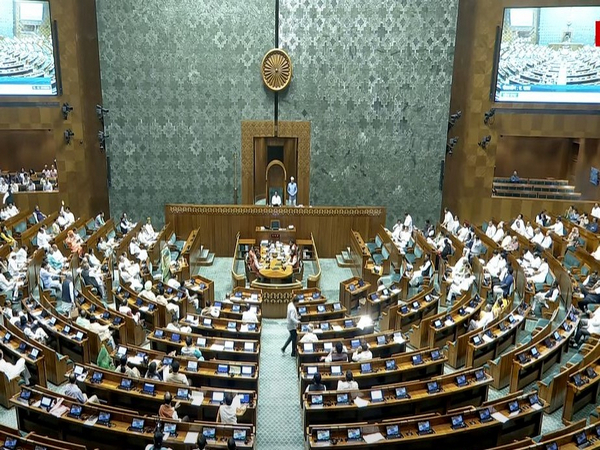New Delhi [India], August 7 (ANI): Lok Sabha on Wednesday passed the Finance Bill 2024-25 with Finance Minister Nirmala Sitharaman stating that the government has strived for greater simplification of tax laws and procedures to enable growth and employment in the country.
The Finance (No.2) Bill, 2024 was passed after a reply by Sitharaman with the House rejecting the amendments moved by opposition by a voice vote.
In her reply, Sitharaman said the vision of Prime Minister Narendra Modi has been to establish a simple, efficient and fair technology-driven taxation regime in the country.
“So, simplification and ease of compliance for the taxpayer has been the primary objective with which in the last 10 years, and this year, in the third term of PM Modi, the approach to taxation has been to simplify it, reduce the burden on taxpayer and make sure it is transparent and equitable,” she said.
“This year also, our approach has been that we bring in greater simplification of tax laws and procedures, and that we enable growth and employment in this country,” she added.
Sitharaman presented the Union Budget in Parliament on July 23. This is the first full budget of the NDA government led by PM Modi. The BJP-led alliance won a third successive term earlier this year.
The Lok Sabha took up discussion on the Finance Bill after the Appropriation Bill for the central government’s expenditure for 2024-25 was passed by the House on Monday.
Sitharaman said the BJP-led government has again revised slabs in the new tax-filing regime in the Union Budget presented last month.
Noting that the government did not put additional tax burden during the Covid to meet government expenditure, she said the approach is to simplify taxation and reduce the burden on taxpayers.
Replying to the opposition members who repeatedly accused the government of burdening taxpayers both through direct and indirect taxes, she said that the government has raised standard deduction for salaried employees, increased the limit of exemption of capital gains on certain listed financial assets and abolished angel tax.
“Standard deduction for salaried employees has also been increased from Rs 50,000 to Rs 75,000 in the new regime in this budget. This is an effective relief up to Rs 17,500 for a salaried employee,” she said.
“In 2023, the slabs for personal income tax were significantly liberalised. All taxpayers had reduced tax liability of Rs 37500. This govt has again revised slabs in the new regime,” she added.
The minister said that these steps will benefit the middle class.
For the benefit of the lower and middle-income classes, Sitharaman in her Budget speech proposed to increase the limit of exemption of capital gains on certain listed financial assets from Rs 1 lakh to Rs 1.25 lakh per year.
The Union Budget for 2024-25 pegged the fiscal deficit target at 4.9 per cent of gross domestic product (GDP). The government intends to bring the fiscal deficit below 4.5 per cent of GDP by the financial year 2025-26. The difference between total revenue and total expenditure of the government is termed the fiscal deficit.
The central government kept the capital expenditure outlay at Rs 11.11 lakh crore for 2024-25, as was announced by Sitharaman in her interim Budget, ahead of the General elections. A capital expenditure, or capex, is used to set up long-term physical or fixed assets. (ANI)
Disclaimer: This story is auto-generated from a syndicated feed of ANI; only the image & headline may have been reworked by News Services Division of World News Network Inc Ltd and Palghar News and Pune News and World News
HINDI, MARATHI, GUJARATI, TAMIL, TELUGU, BENGALI, KANNADA, ORIYA, PUNJABI, URDU, MALAYALAM
For more details and packages











